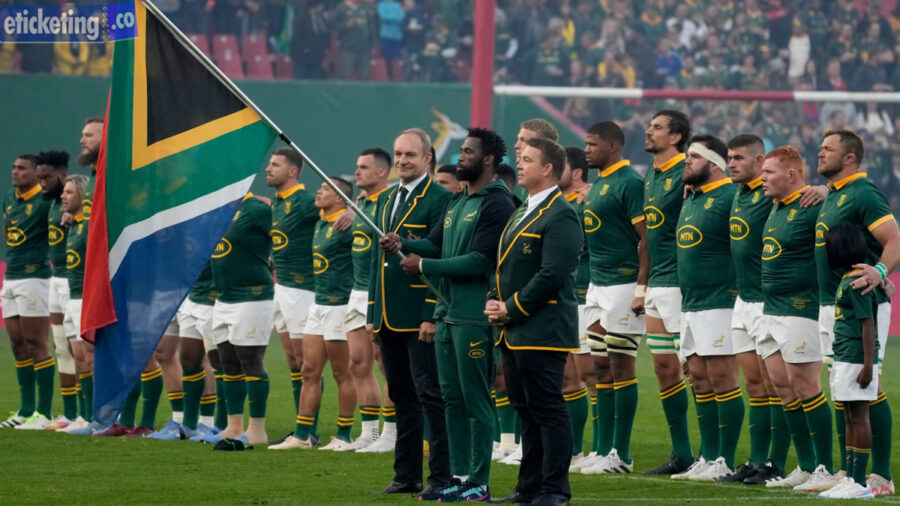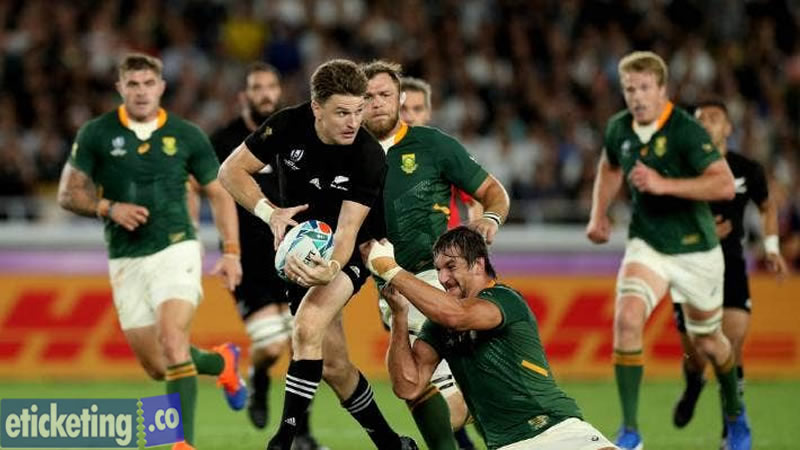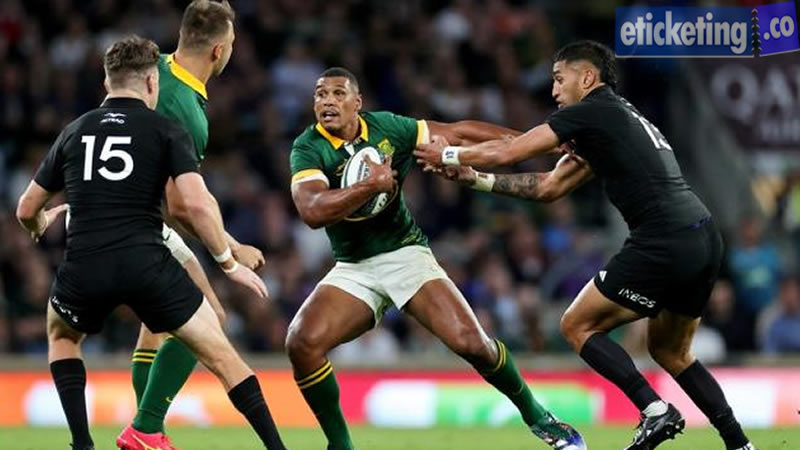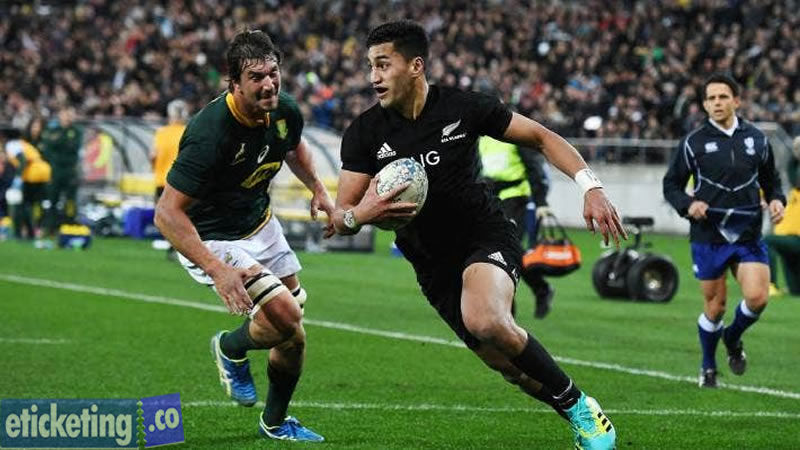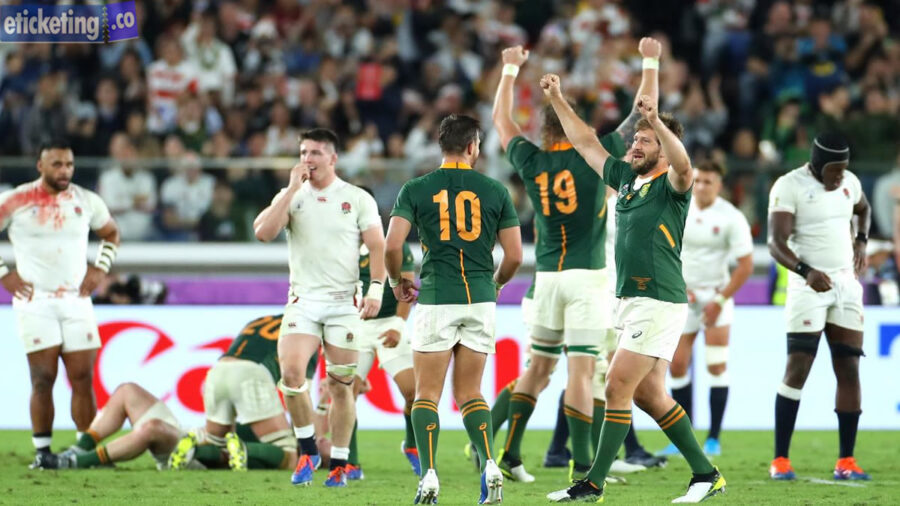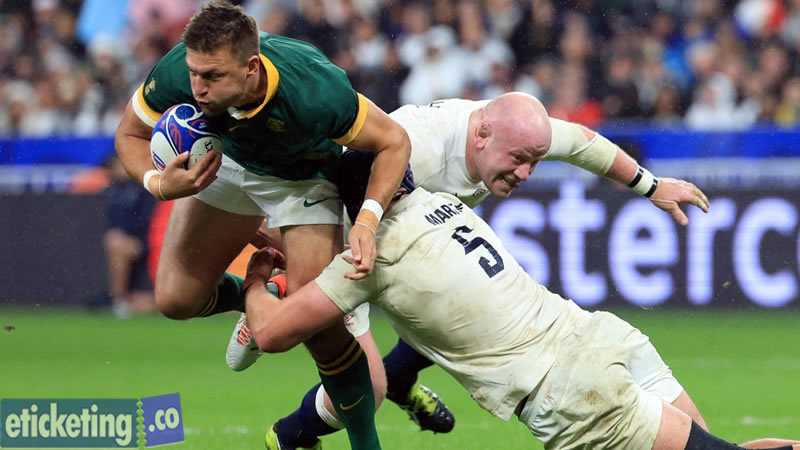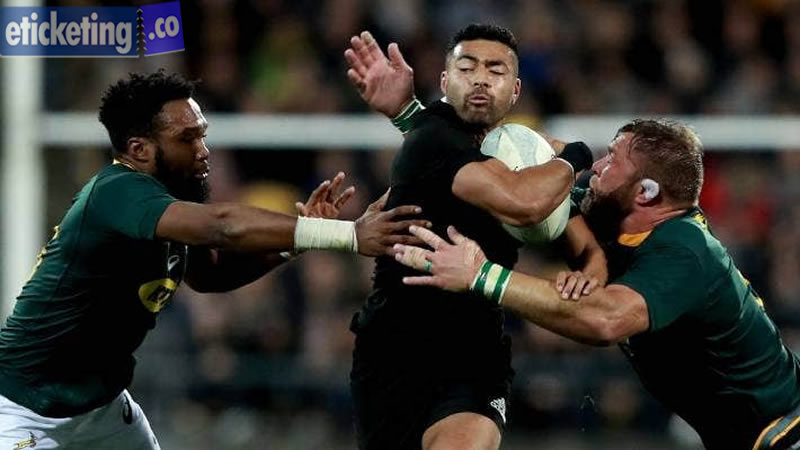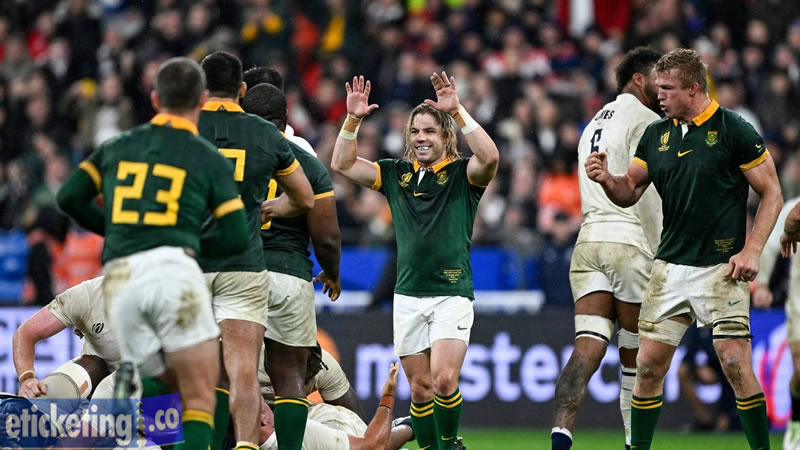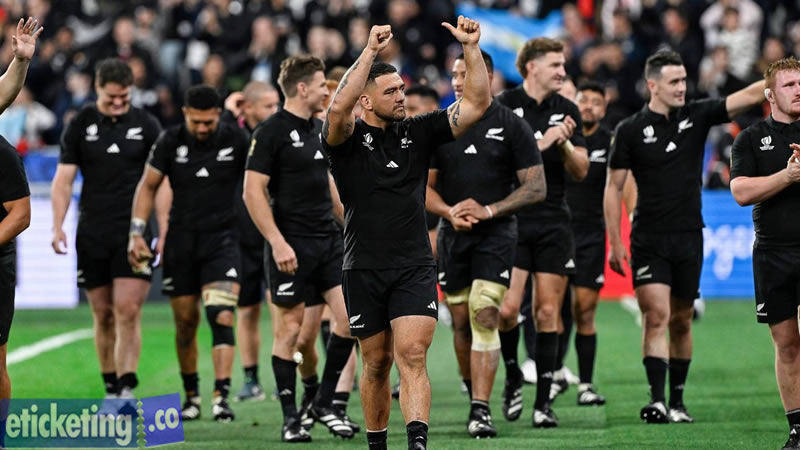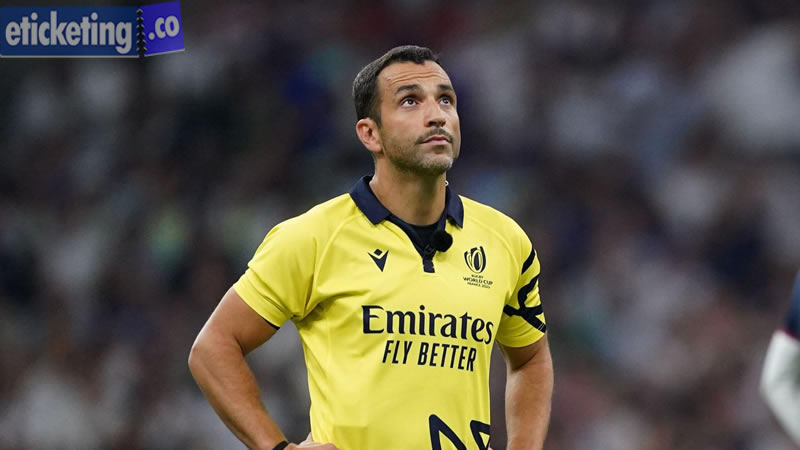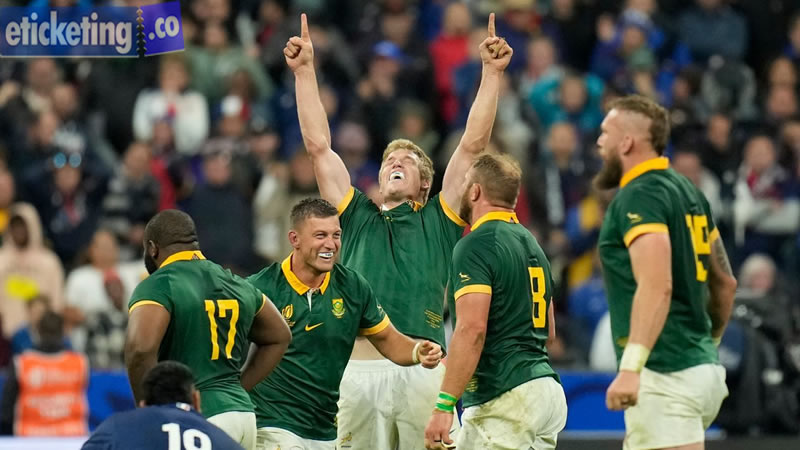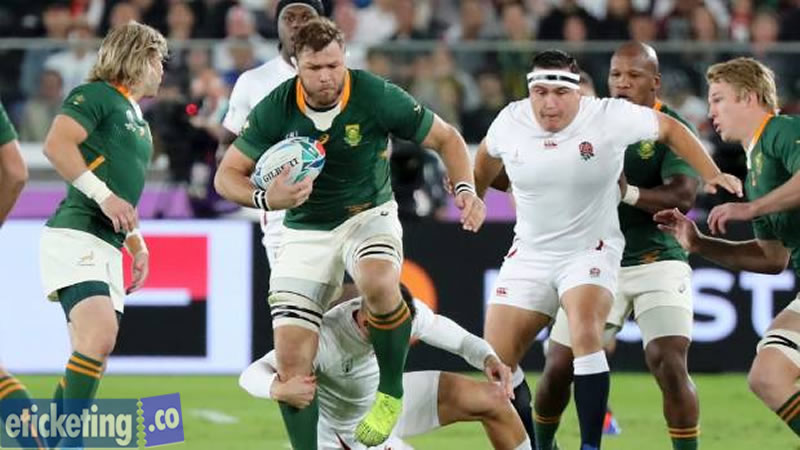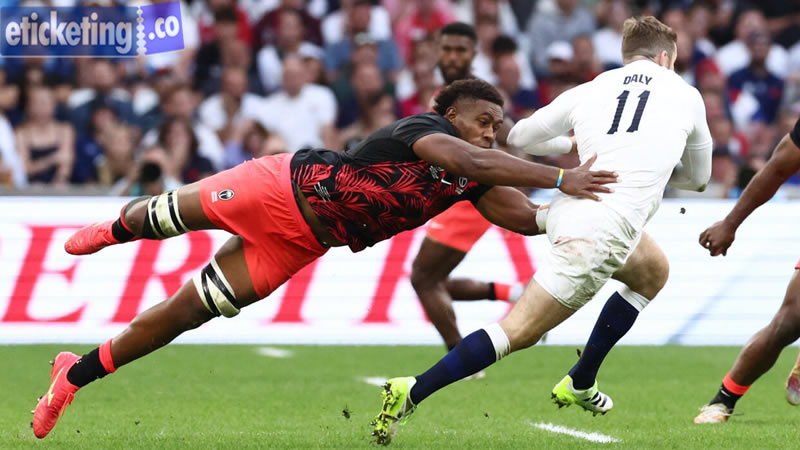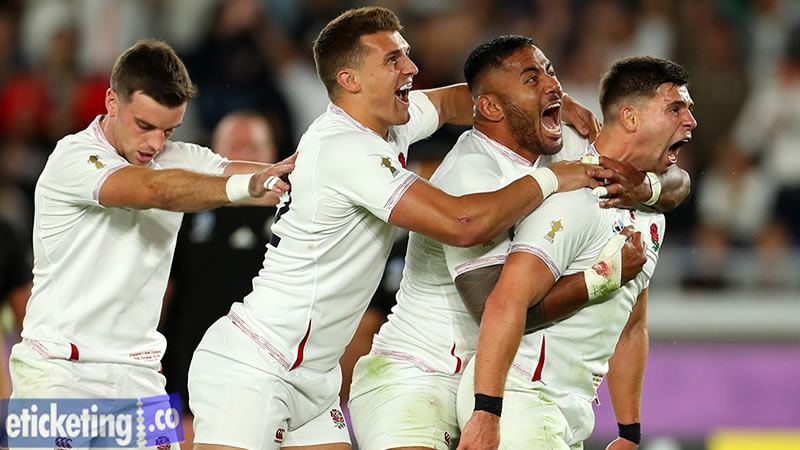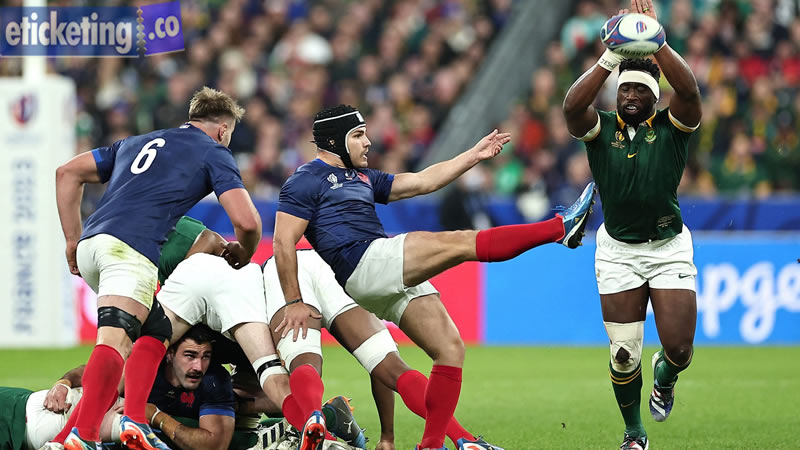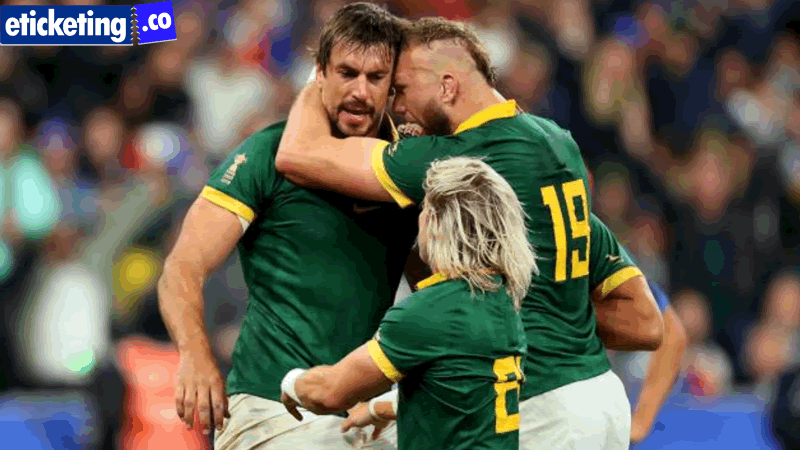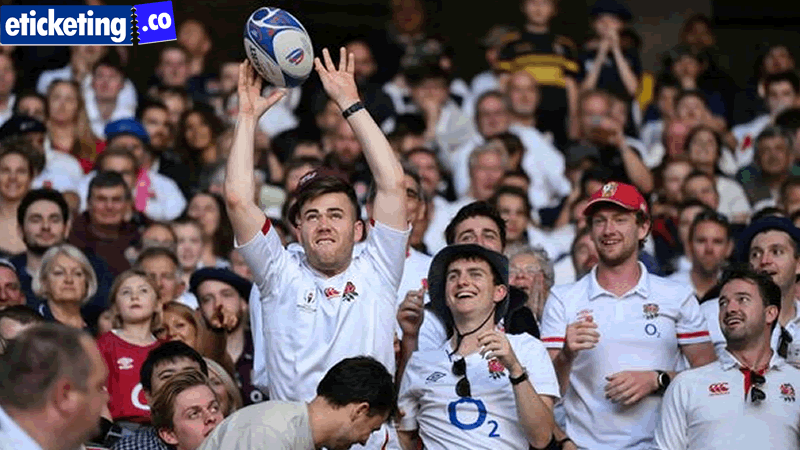Former Scotland coach turned Irish TV rugby pundit Matt Williams believes the tough approach to rugby union embodied in South Africa is bad for the sport. A scrum penalty three minutes from the end of the Rugby World Cup semi-final between South Africa and England at the Stade de France was what ultimately became the difference between the two teams, with the legendary Boks team seemingly achieving the impossible teams. defending world champions.
Rugby World Cup fans worldwide are called to book RWC 2023 tickets from our online platform eticketing.co Rugby fans can book Rugby World Cup Final Tickets on our website at exclusively discounted prices.

Australian pundit Williams says the focus on set pieces – and teams trying to win penalties – is becoming the centerpiece of the sport rather than a means to restart play.
What are you stimulating? Williams told the Virgin Media Sport panel after the game. By awarding a penalty where you can get three points or kick in touch and start a maul, you encourage the scrum to get a penalty. If you remove this incentive, then what will be the incentive?
You pass the ball to the defenders, you have 16 forwards, so there’s all this space. Throughout the 90’s and early 00’s we had great back line movement and great back line play from scrimmages, it was exciting and great.
Scrums still existed and it was a competition, you could still score a try but the referee wasn’t going to give you a penalty unless you committed foul play or were offside. This made the game much better…
Finding Loopholes in the Game
In the world of rugby, a game celebrated for its rugged physicality, intelligence and tactics often stand out as key differentiators. Teams like South Africa and England have mastered the art of finding and exploiting every possible loophole in the game to their advantage. The result is an impressive display of strategic prowess and adaptability.

A Different Perspective
While the ability to exploit game rules and regulations can be admired for its tactical brilliance, there are those who argue that it may not be good for the sport in the long run. The concerns arise from the impact such strategies have on the game’s entertainment value and the overall balance between different styles of play.
An Unbalanced Game?
Critics of the “loophole-exploiting” approach argue that it tilts the game in favor of teams employing these tactics, making it harder for others who prefer a more open, ball-in-hand, and exciting style of play. The concern is that rugby is, at its core, a form of entertainment, and strategies focused on brute force and physicality can make the game less attractive to watch.
The Entertainment Factor
One key question raised is whether rugby is primarily a sport for 15 players on each side or just eight. When strategies become overly focused on the scrum, mauls, and winning battles in the trenches, it can shift the balance away from the creative, open, and dynamic aspects of the game that capture the audience’s imagination.
Debates Over the Evolution of Rugby
This perspective has sparked a lively debate within the rugby community. Some believe that these tactical loopholes are simply part of the game’s evolution and adaptability, while others argue that embracing these tactics could ultimately undermine the sport’s appeal.
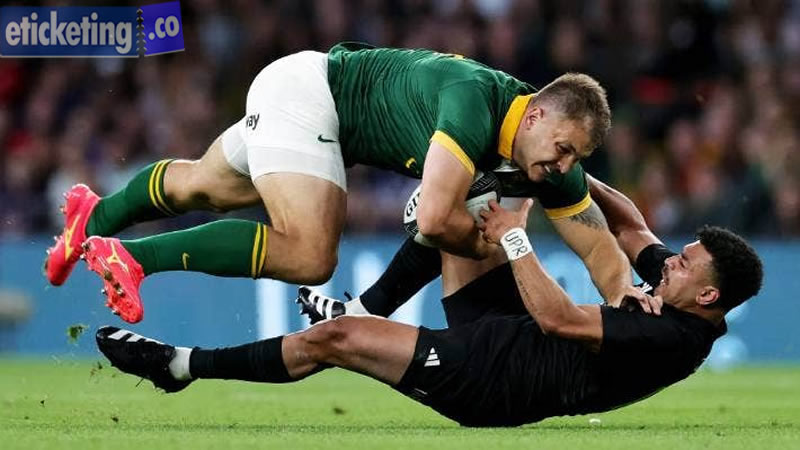
Is Rugby at a Crossroads?
This debate brings up questions about the future of rugby and whether it should place more emphasis on retaining its unique and traditional elements or evolving into a more dynamic and entertaining spectacle. It’s a complex challenge faced by the sport’s governing bodies and participants. Rugby fans can book Rugby World Cup Final Tickets on our website at exclusively discounted prices.
An Ever-Recurring Controversy
The issue of tactics focused on exploiting the rules and regulations of rugby is not new and seems to surface regularly. The sport’s evolution is an ongoing process, and how it balances its traditional elements with the need to remain entertaining and engaging is a debate that will likely continue.
In the end, rugby will need to find the right balance between respecting its traditions and embracing the need for an evolving and entertaining game. The art of exploiting loopholes may be a part of rugby’s tactical brilliance, but it should not overshadow the sport’s essence as a thrilling and captivating form of entertainment.
Quick resolution to Tom Curry-Bongi Mbonambi race row at Rugby World Cup is in everyone’s interests
As the Rugby World Cup unfolds and the world’s finest teams clash on the field, the tournament has also unwittingly thrust a significant issue into the spotlight – racial discrimination and inequality in the sport. The recent race row involving South African rugby player Bongi Mbonambi has brought this issue to the forefront, prompting discussions that extend beyond the try line and into the realms of society and equality.

The Controversy Surrounding Mbonambi
The incident that ignited this discussion occurred during South Africa’s match against France, one of the marquee clashes of the tournament. Bongi Mbonambi, an accomplished South African hooker and a respected figure in the game, was subjected to racial abuse from a French player. This disturbing incident has since triggered a race row that could not be ignored.
A Multi-Faceted Issue
The incident involving Mbonambi is not an isolated occurrence. It’s a reflection of the broader issue of racism in sports, including rugby. Many talented athletes of color have faced prejudice and discriminatory behavior, not only from opponents but sometimes from their own fans and even fellow players.
A Call for Change
While incidents like the Mbonambi case are alarming, they also present an opportunity for change. The sporting world has made significant strides in addressing racism and inequality, but there is still much work to be done. This incident acts as a stark reminder that rugby, like many other sports, should strive to be inclusive and diverse.
Building a Diverse and Inclusive Rugby Community
Rugby, often hailed for its values of respect, integrity, and camaraderie, can play a crucial role in promoting a more inclusive world. The global rugby community needs to stand against racism in all its forms. It’s not just the responsibility of the players and officials; fans, administrators, and governing bodies must all work together to create an environment where discrimination has no place.
Educating and Raising Awareness
Rugby organizations and federations worldwide must take proactive steps to educate players, fans, and the general public about racial equality and the consequences of racist actions. But, this education and awareness campaign can be a powerful tool in breaking down barriers and stereotypes.

Holding Offenders Accountable
Addressing racial discrimination in rugby, or any sport, also requires holding offenders accountable for their actions. Strict sanctions and penalties must be in place to deter players, officials, or fans from engaging in such behavior.
A Chance for Transformation
The race row involving Mbonambi is an unfortunate incident. However, it’s also an opportunity for rugby to stand against racism and inequality, championing diversity, and inclusion. By addressing this issue head-on, rugby can contribute to a more equitable and just world, both on and off the field.
However, Rugby is a sport where courage, strength, and unity are celebrated. Combating racism and inequality should be another reason for the rugby community to come together. The path to a better, more inclusive world starts on the rugby field, and it’s a journey we should all undertake.
As the Rugby World Cup continues, fans, players, and officials should remember that tackling racism is not just a responsibility but also an opportunity. An opportunity for rugby to play a vital role in changing our world for the better.
We are offering Rugby World Cup Final Tickets. Rugby admirers can get RWC 2023 Tickets through our trusted online ticketing marketplace. Eticketing.co is the most reliable source to book Rugby World Cup Tickets.

